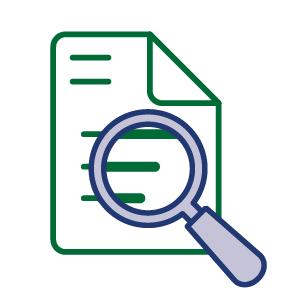Student Employment/Federal Work Study
Work On or Off Campus
If you have financial need, you can earn money for college with a part-time Federal Work-Study job at OCC or off campus. Work-study is like any other job: You get paid for working. But if you’re lucky, besides getting paid you gain valuable work experience related to your major, some job history for your resume, and useful contacts.
To qualify for FWS, you must meet two requirements:
- Have financial need, which OCC determines through your Free Application for Federal Student Aid (FAFSA).
- Take at least six credit hours per semester at OCC.
What is Federal Work-Study?
How Federal Work-Study Works
Whenever possible, your FWS job is supposed to align with your educational and career goals. The idea is that besides earning money, you’ll gain work experience related to your future career.
FWS works slightly differently depending on whether you work on or off campus:
- If your job is at OCC, you can work a maximum of 20 hours per week (30 hours during peak periods with prior approval). You will earn $15 per hour. You’re paid every two weeks by check or direct deposit.
- If your job is off campus, you typically work for a nonprofit organization or a government agency. Your work “must be in the public interest,” according to the U.S. Department of Education. An example: reading to or tutoring children at local elementary schools. You can work up to 30 hours per week, and the employer sets your pay rate and frequency. You’re paid by check or direct deposit.
You can spend money you earn through FWS however you like. Unlike other types of financial aid, it doesn’t have to go toward school expenses like tuition.
A Minute to Learn It - 6 Good Things You Need to Know about Federal Work-Study
Federal Work-Study Vs. Other Part-Time Jobs
Other part-time jobs available to you may pay more than FWS. However, FWS has many advantages over other jobs:
- Work-study jobs are typically flexible enough that you can schedule them around your classes.
- Your work-study job may be related to your educational and career goals, thus providing valuable work experience.
- Your work-study supervisor can be an excellent reference when you apply for graduate school or a full-time job.
- When you fill out your next FAFSA, your work-study earnings won’t be counted as income in determining whether you qualify for need-based financial aid. Earnings from other jobs are counted as income, potentially reducing your aid.
How to Apply for Federal Work-Study
- Fill out and submit the current Free Application for Federal Student Aid, which is available Oct. 1 for the next school year. Submit your form as early as
possible because FWS funds are limited.
- On your FAFSA, be sure to check “Yes” when asked, “Are you interested in being considered
for work-study?” The question should be in the “Student Demographics” section of the
form.
- When you receive your financial aid award letter, see if you’ve been approved for
work-study. You can access the letter in the Financial Aid section of MyOCC.
- If you’re approved for work-study, accept that part of your financial aid award and
any other aid you want to receive such as grants, loans, and scholarships.
- Fill out the Student Employment Eligibility Form (JP11). You can access it after logging in with your MyOCC username and password.
- Once you’re notified that your form has been approved, log into the Student Employment Job Board. It’s only accessible to students with approved forms.
- Search for jobs, and apply for any that seem like a good fit.
Qualifying for FWS doesn’t guarantee you a job. Jobs are limited, and you must compete for them with other eligible students.

Essentials
- There’s no guarantee that your work-study job will provide enough hours for you to earn all the FWS money you’ve been awarded.
- You can only earn up to the amount listed for FWS on your financial aid award.
- To remain eligible for FWS, you must make Satisfactory Academic Progress.
- Your FWS doesn’t automatically renew. If you want to receive it or any other type of financial aid again, you must file a new FAFSA each year.
Sign-Up for Handshake
You have access to an amazing job-search platform called Handshake. Utilize Handshake to find job opportunities and internships, no experience is required! You are able to connect with excited employers via direct messaging. Do not wait sign up for Handshake today.
Contact Information
Email Career Services
Phone: (248) 232-4730
Meet Our Team
Service Hours:
Monday thru Friday 8:30am - 5:00pm
Location:
Auburn Hills Campus
B Building - 1st floor
